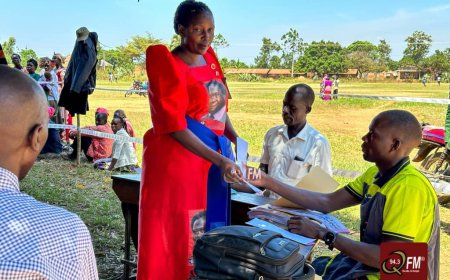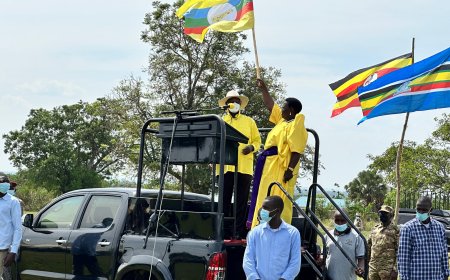Uganda Launches Malaria Vaccine in Routine Immunization Schedule: A Historic Milestone in the Fight against Malaria
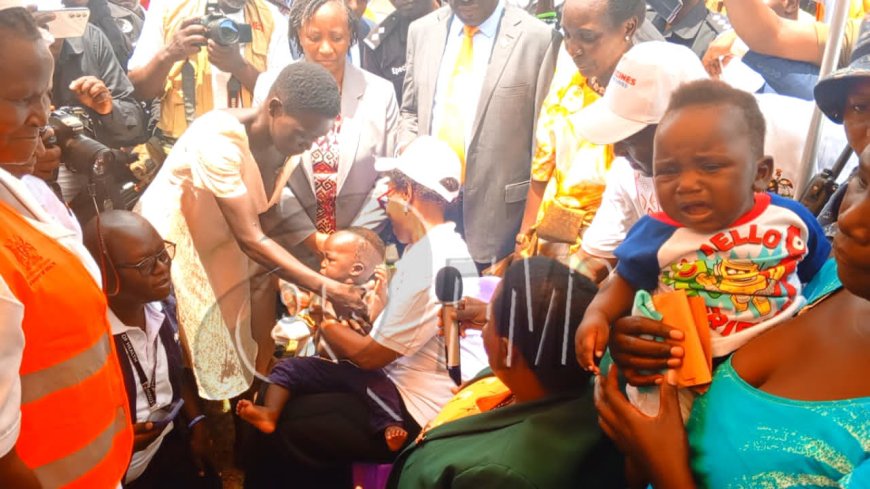
In a historic step aimed at combating the deadly malaria disease that continues to plague Uganda, particularly among young children, the Ministry of Health has officially introduced the Malaria vaccine into the country's routine immunization schedule.
This announcement was made during a landmark malaria vaccination campaign, which began with a significant launch event presided over by Prime Minister Robinah Nabbanja in Apac District in northern Uganda on Wednesday, marking a bold move towards safeguarding the nation’s health and future generations.
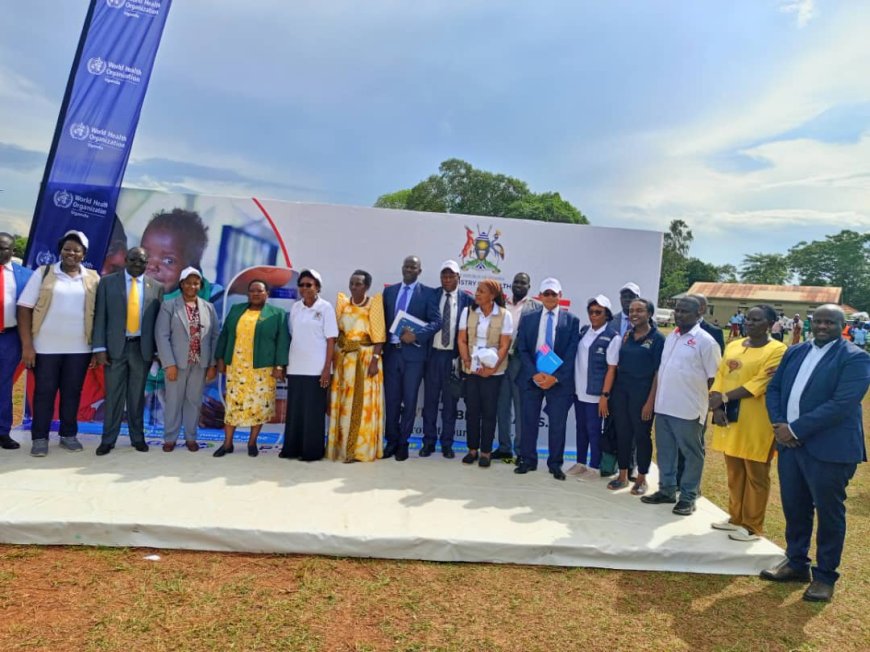
Malaria remains one of Uganda’s most devastating public health challenges, contributing to a major burden on the country’s health system, economy, and society. It is the leading cause of illness and death in Uganda, with young children under five years of age being particularly vulnerable.
According to the 2024 Health Management Information System (HMIS) report, about 32,900 people contract malaria every day in Uganda, resulting in significant disruptions in education and productivity. Tragically, 16 people die from malaria every day, with children under five being the majority of the victims.
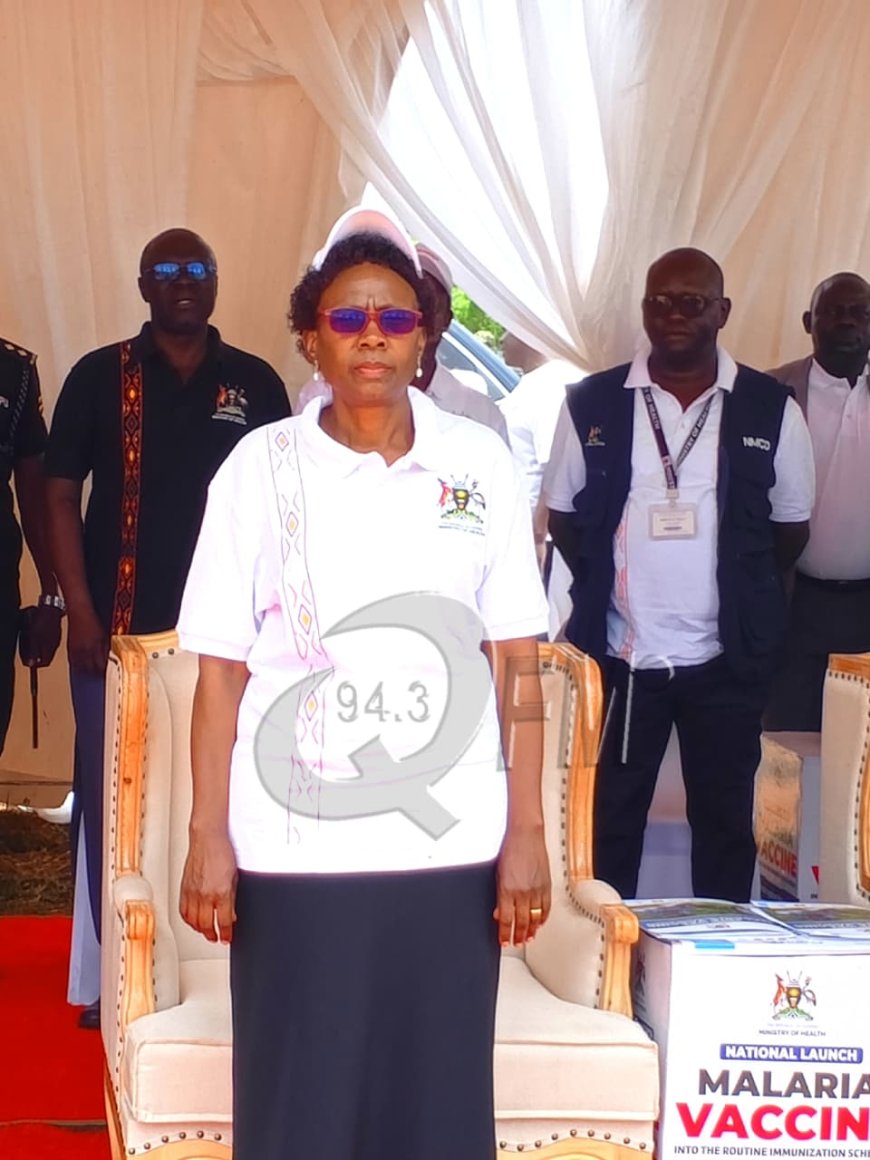
In 2023 alone, Uganda recorded a staggering 12.6 million malaria cases, representing nearly 29% of the population affected by the disease.
This places Uganda among the top three countries globally for malaria burden, accounting for 4.8% of all malaria cases worldwide. Despite numerous interventions, malaria remains a formidable challenge, underlining the urgent need for innovative solutions.
Introduction of the Malaria Vaccine
On April 2, 2025, Uganda launched a comprehensive malaria vaccination campaign aimed at immunizing 1.1 million children, particularly those under two years old.
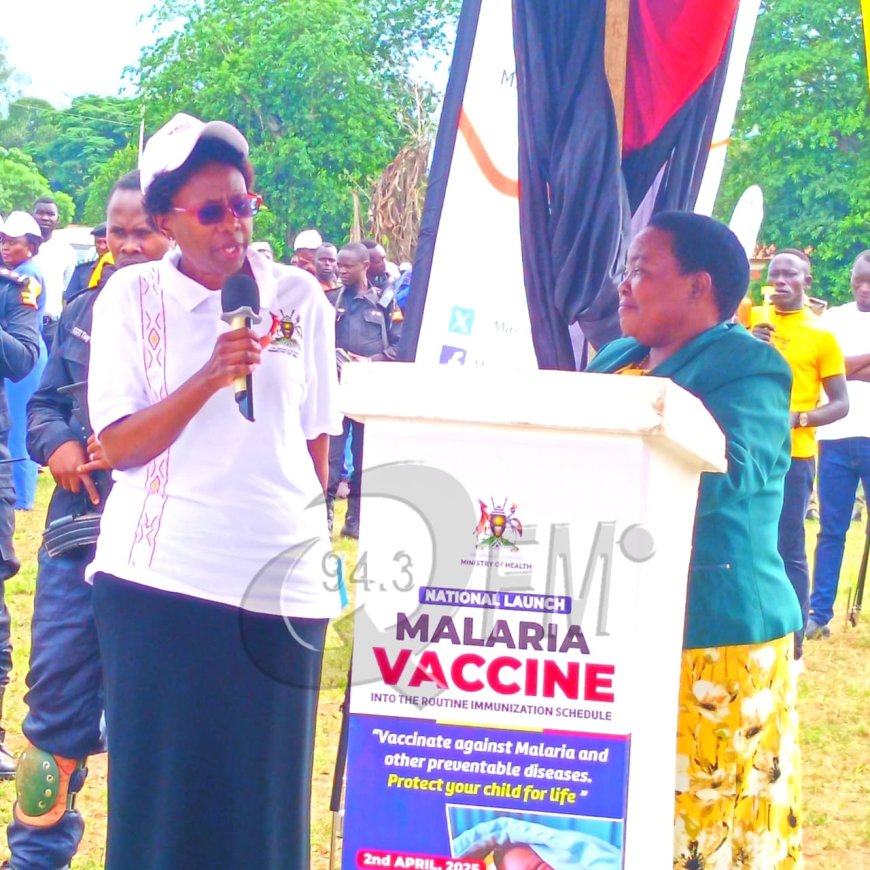
This vaccine, the R21/Matrix-M injectable malaria vaccine, has proven to be an effective tool in reducing the burden of malaria and preventing severe malaria cases. The vaccine will be administered in four doses at the ages of 6, 7, 8, and 18 months to ensure maximum protection.
Prime Minister Robinah Nabbanja, who represented President Yoweri Museveni at the launch event at Booma Grounds in Apac Municipality, emphasized the historic significance of the malaria vaccine rollout.
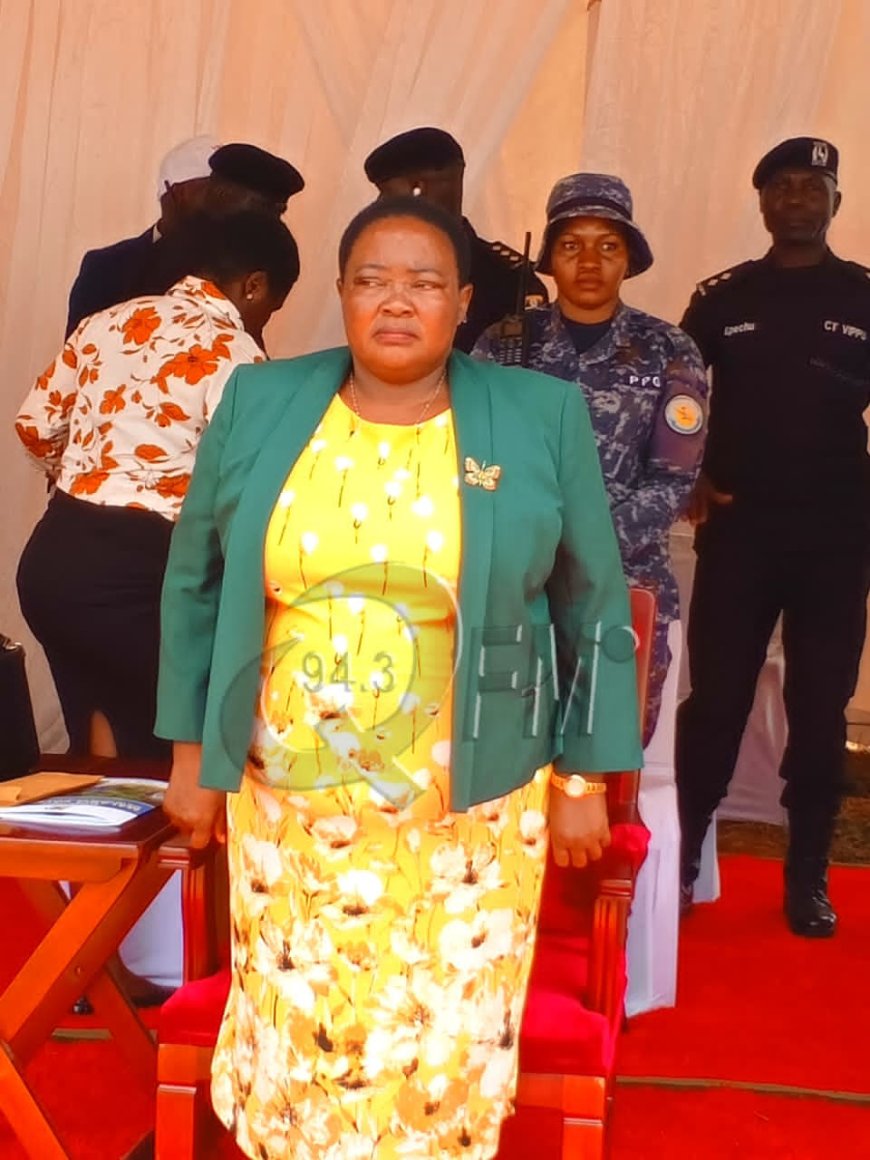
"It is a bold step toward liberating our nation from the heavy burden of malaria, a disease that has for too long robbed our children of their futures, strained our health system, and hindered our socio-economic progress," Nabbanja stated.
During the event, she also read a speech on behalf of President Museveni, who expressed his strong commitment to the fight against malaria and highlighted the government's dedication to ensuring the health and well-being of the nation's children.
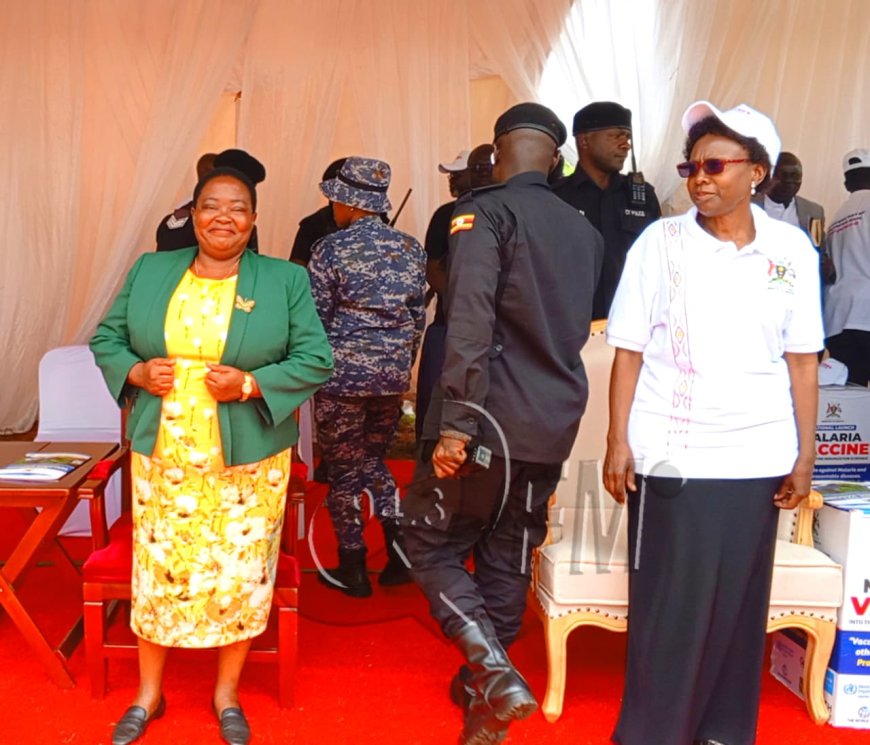
The vaccination campaign will target districts with high to moderate malaria transmission rates, covering 105 out of Uganda's 146 districts.
The government’s partnership with global organizations such as WHO, UNICEF, GAVI, and PATH will make the malaria vaccine available free of charge to eligible children, significantly enhancing access to this life-saving intervention.
In her remarks at the malaria vaccine launch in Apac, Minister of Health Dr. Jane Ruth Aceng emphasized the pressing need to tackle malaria, highlighting the alarming statistics that demonstrate the continued burden of the disease in Uganda.
She called the introduction of the malaria vaccine a landmark achievement for the country while emphasizing the importance of vaccination in reducing the severity of malaria, preventing complications such as cerebral malaria, severe anemia, organ failure, and death.
"In 2024 alone, Uganda recorded 10.9 million cases of malaria, with 3,582 deaths. This translates to 16 people dying every day, with 10 of them being children under the age of five. These figures are not just numbers; they represent families and communities suffering from a preventable disease”, Aceng said.
Dr. Aceng pointed out that Apac District, where the vaccine launch was held, is particularly affected by malaria.
"Apac has been described as a 'brigade of mosquitoes,'" she noted. "Last year, Apac recorded 41 deaths from malaria, including four children who died in just one month, which is a significant number compared to the national average."
The Minister provided a detailed breakdown of the malaria burden in Apac noting that “the test positivity rate stands at 66%, which is far higher than the national average of 42%. Additionally, the district has the highest infective bites, with 1,500 per person per year, which is equivalent to three infective bites per night."
Aceng also highlighted the concerning prevalence of malaria among pregnant women in the region. "In Apac, 74% of pregnant mothers tested positive for malaria, compared to the national average of 30%. In 2020, 3,801 pregnant women tested positive for malaria, and in 2024, that number rose to 4434," she said.
"The statistics are clear: the malaria burden remains significant, and we must take urgent and coordinated action to combat this disease if we are to eliminate it from Uganda."
She also underscored the critical role that malaria plays in Uganda's healthcare system. "Malaria continues to be the leading cause of outpatient visits, accounting for 20% of hospital admissions and 10% of all deaths," Aceng added.
The Minister expressed her appreciation for the government's partnership with GAVI, the Vaccine Alliance, in co-funding the purchase of malaria vaccine doses. "This vaccine is a vital tool in the fight against malaria, and I am grateful for the support that has made this initiative possible."
Dr. Aceng also took the opportunity to highlight Uganda's progress in immunization. "Uganda now has 14 vaccines in our routine immunization schedule, up from just six in 1963. This progress is a testament to our commitment to improving child health”, she said.
She also emphasized that the benefits of vaccines extend beyond the prevention of childhood diseases.
"Vaccines not only protect children from life-threatening diseases, but they also contribute to strengthening their ability to fight infections, reducing the financial burden on families, and enhancing school enrollment and retention. Additionally, we have seen a reduction in fertility rates to 5.2% as more women see their children surviving and thriving”, Aceng explained
The Minister concluded by noting the impact on infant mortality, which has decreased to 36 per 1,000 live births, signaling a positive trend in Uganda's overall health outcomes.
"We are taking a significant step forward in improving the health of our children and ensuring a brighter future for Uganda but, the journey is far from over. Together, we must continue to fight malaria and work toward eliminating it in Uganda”, Dr. Aceng said.
She urged all parents and caregivers to ensure their children complete the four-dose vaccination regimen. “For optimal protection, the vaccine must be administered at 6, 7, 8, and 18 months. I encourage all parents to take full advantage of this opportunity,” Dr. Aceng said.
The malaria vaccination campaign has garnered widespread support from local health and government leaders.
Muwonge M. Abdulnoor Chief Administrative Office Apac noted that the people of Apac are no strangers to the heavy burden of malaria.
“I have always described Apac as a 'mosquito base' because of the overwhelming presence of this disease in our community. The malaria situation here is dire, and it’s high time we intensify our efforts. One of the most important strategies we can employ is more widespread spraying to reduce the mosquito population and prevent malaria transmission”, he said.
Additionally, he urge the government and all stakeholders to prioritize the upgrading of the different health centers, particularly Akokoro and Teboke Health Centers, from Health Center III to Health Center IV citing that this move will improve service delivery and ensure that people have access to the quality healthcare they deserve.
Apac district boss, Odongo Asanti is seemingly hopeful that with the launch of this malaria vaccine, the government is now taking a decisive step toward defeating malaria in Apac and across Uganda.
Odongo notes that malaria has long been a thorn in Apac, affecting several communities socially and economically.
“Malaria has contributed to school dropouts, poor academic performance, poverty, and even domestic violence. In some instances, malaria-related deaths in our district have been linked to witchcraft due to the high levels of misconception surrounding the disease”, said Odongo.
Furthermore, he appealed to the government for additional funding for road rehabilitation, especially for roads like Apoi, Akokoro, and Alengakur urging that these particular roads are crucial for improving accessibility to health facilities, which will be essential in ensuring that people can receive timely care and vaccination.
Dr. Daniel Odongo, the District Health Officer for Apac, emphasized the importance of the vaccine in addressing the district's persistent malaria problem.
"In Apac District, malaria continues to be the leading cause of illness and death. Apac is in category one! This vaccination campaign is an essential tool in our fight to reduce the disease burden and improve the overall health of our children," Dr. Odongo said.
Apac Woman MP Betty Engola extend my heartfelt gratitude to the government for allocating 673 million shillings to support the construction of a modern medical store at Apac Hospital. “This is an important step in ensuring we have the necessary infrastructure to support our health system”, she added.
She also call for the relocation of the malaria control program to the Lango sub-region, as this region has been a malaria hotspot for many years. Furthermore, she proposed that the government establish an institute at Lira University to focus on malaria research, particularly on new drugs and methods for testing and controlling the spread of malaria.
“As we strengthen our fight against malaria, it is also essential that we support our health workers, particularly those who have formed a savings and credit cooperative (SACCO) in 2023. The government must assist these health workers in their efforts to improve their livelihoods”, said Mrs. Engola.
“Lastly, our health facilities need proper infrastructure to function effectively. I urge the government to prioritize the provision of a police patrol vehicle for our health facilities and ensure that power connectivity is extended to all health centers. The rehabilitation of our road network is also vital to improve access to healthcare”, she added
Hon. Patrick Ocan, the Area Member of Parliament for Apac, expressed his support for the vaccination program.
"This is a historic moment for Uganda, and it is one that will save many lives. We encourage all parents to ensure their children are vaccinated, as this will help build a malaria-free future for our children and communities," Hon. Ocan said.
Betty Engola, the Woman MP for Apac District, echoed these sentiments, highlighting that the malaria vaccine would significantly reduce child mortality rates in the district. "As a mother and a representative of the people, I am excited about this new development. It is a game-changer that will protect our children and contribute to a healthier Uganda," said MP Engola.
Mothers whose children have benefited from the malaria vaccine shared their gratitude for the life-saving intervention. Annet Atim, Apac District, expressed relief, saying, “I am happy that my child has received the malaria vaccine. Malaria has caused us so much pain in the past, but I am now confident that my child is protected.”
Another mother, Dinah Atim, from a rural village in Apac, spoke about the peace of mind the vaccine has given her. “Malaria has always been a constant threat to our children, and I almost lost a child before due to severe malaria. This vaccine is a blessing to all mothers in our community,” said Dinah.
Hellen Akullu, a mother from a neighboring village, shared her excitement about the vaccine’s role in safeguarding her children. “I encourage all mothers to bring their children for the malaria vaccine. We cannot afford to lose any more children to malaria,” she added.
As Uganda embarks on this ambitious malaria vaccination program, the government is committed to ensuring that no child is left behind.
Dr. Robin Nandy, the UNICEF Representative in Uganda, emphasized the need for continued efforts to complement vaccination with other malaria prevention measures, including the use of insecticide-treated nets, indoor residual spraying, and seasonal malaria chemoprevention.
"The malaria vaccine is an important addition to Uganda’s malaria control efforts, but it must work in tandem with other proven prevention strategies to ensure lasting impact," Dr. Nandy stated.
WHO Representative to Uganda, Dr. Kasonde Mwinga, hailed the launch, noting that Uganda is the 19th African country to integrate the malaria vaccine into its routine immunization program.
“By integrating the malaria vaccine into routine immunization, Uganda is taking a bold step to protect its children, save lives, and secure a healthier future,” said Dr. Mwinga.
Dr. Charles Olaro, Director General of Health Services emphasized the importance of ensuring that every child under 18 months receives the R21/Matrix-M malaria vaccine, as outlined in our national immunization schedule.
“This vaccine is crucial in the fight against malaria, and we need to make sure it reaches every child in Uganda”, he said.
“To all our dedicated health workers, I urge you to administer this vaccine with the utmost dedication and commitment. Your role is vital in saving lives and protecting the future of our children”, Dr. Olaro added.
Finally, he also encouraged leaders to help dispel any negativity or misconceptions surrounding this vaccine. “Public trust is key to the success of any vaccination program, and we all have a responsibility to ensure that our communities understand the importance of this vaccine in eliminating malaria”, he noted.
The launch of the malaria vaccine is a critical part of Uganda’s long-term strategy to reduce malaria cases and deaths. The country has set an ambitious goal to eliminate malaria by 2030, and this new vaccination program is expected to be a game-changer in achieving that target.
The introduction of the malaria vaccine into Uganda’s routine immunization schedule is a monumental step towards improving the health of the nation’s children and reducing the devastating impact of malaria. As Uganda joins the ranks of other African nations taking bold steps to combat malaria, the government and global partners are working tirelessly to ensure the success of the vaccination campaign. Parents, caregivers, and communities are encouraged to take full advantage of this life-saving opportunity and protect the health of future generations.
What's Your Reaction?









